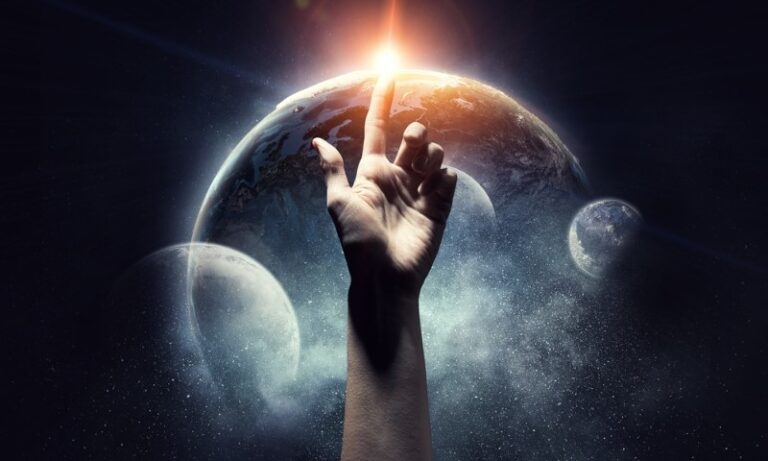Why Did God Destroy the Earth the First Time?

The Bible's narrative of Noah's Ark and the Great Flood remains one of the most well-known stories. While the exact nature of the event remains a topic of debate, it sheds light on God's motivations for bringing about such a cataclysmic event.
Rampant Sinfulness
The primary reason for the flood was the extreme wickedness of humanity. Genesis 6:5 states that "the wickedness of mankind was great on the earth, and that every intent of the thoughts of his heart was only evil continually." This rampant sinfulness had reached a point where it threatened the very fabric of creation.
Divine Judgement
In response to humanity's rebellion, God expressed deep sorrow and determined to wipe out all living creatures from the face of the earth. However, another reason for the flood emerges from Genesis 6:1-4. This passage describes a union between the "sons of God" and the "daughters of humans," resulting in the birth of the Nephilim. These fallen angels corrupted humanity and played a role in the widespread wickedness.
An Example of Divine Judgement
Peter and Paul later drew upon the flood as an example of God's judgement against sin. The flood served as a warning to future generations that rebellion against God would have severe consequences. It demonstrated that while God's judgement may be delayed, it is certain and unavoidable.
The Great Flood was brought about by God to eradicate the extreme sinfulness of humanity, aided by the corruption caused by fallen angels. Secondly, the flood served as an eternal example of God's judgement against sin, warning all who would choose to rebel against their Creator.
Key Points: Why Did God Flood the World?
- The flood was a judgment to restrain humanity's evil and prevent further wrongdoing.
- God grieved over humanity's wickedness but sent the flood out of necessity.
- The flood symbolized the "de-creation" of the world, as the earth was submerged in chaos.
- Noah and his family were saved in the ark, representing a new beginning for humanity.
- The flood highlighted the consequences of sin and the brokenness it caused in the world.
- God promised never to destroy the world with a flood again after the flood.
- The flood story emphasized that God is just and will not tolerate uncontrolled evil.
- It also showed that God is merciful and compassionate, providing a way for humanity to start anew.
- The flood serves as a warning to future generations about the consequences of rejecting God's authority.
- The flood story points to the redemption and restoration that God brings through his Son, Jesus Christ.
20 Key Points: Why Did God Flood the World?
- To eradicate rampant wickedness and violence that had corrupted humanity after the Fall.
- To provide a fresh start for humanity in a world cleansed from evil.
- To symbolize the "de-creation" of the world and the removal of chaos and disorder.
- To demonstrate the consequences of sin and the brokenness it causes.
- To emphasize God's justice and intolerance of uncontrolled evil.
- To highlight the importance of obedience to God's commands.
- To serve as a warning to future generations about the dangers of rejecting God's authority.
- To remind us of God's grace and forgiveness, even after great sin.
- To point to the ultimate redemption and restoration that God brings through Christ.

FAQs about Why Did God Destroy the Earth the First Time
Why did God destroy the earth with a flood?
God destroyed the earth with a flood because of the extreme wickedness and violence that had corrupted humanity after the Fall of Adam and Eve.
What was the primary reason for the Great Flood?
The primary reason for the Great Flood was to restrain humanity's evil and create a barrier to further wrongdoing.
What other factor contributed to the flood?
Besides humanity's wickedness, the union between the "sons of God" and the "daughters of humans," resulting in the birth of the Nephilim, played a role in the widespread corruption.
Was the flood an act of revenge?
No, the flood was not an act of revenge but a necessary measure to preserve humanity's future and demonstrate God's justice and mercy.
What promises did God make after the flood?
After the flood, God made a covenant with Noah, promising that such a disaster would never happen again, and the rainbow symbolizes this covenant.
